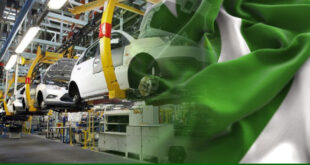Hawala is probably the most convenient way of transferring funds from one party to the other i.e. from within Pakistan to abroad or vice versa without intervention of SBP or the financial sector. Hence, the transaction from initiation to execution is untraceable. Hawala is used for genuine need as well as terrorism. When it comes to genuine need, it may arise through a customer or even a company. Hawala as commonly believed is also used for terrorism purpose.
The hub of Hawala trade is Karachi where we find numerous businesses and traders who have an immediate need to send funds from one country to another. The process starts with a trader, commonly known as a Hawala broker who, usually does not have an office and primarily operates through phone. One interested to transfer the money can call the Hawala broker who can pay a visit to discuss. Taking this as example, Person A is interested to transfer US$1,000 to Person B in Middle East. Hawala broker A would visit him to discuss the deal. Broker A discusses 1. Commission, 2. Exchange rate and 3. Exchange rate inclusive of commission. The commission is the amount charged by Hawala trader A and Hawala trader B located in Middle East for this service. Reaching an agreement, Hawala trader A gives cash Rs105,000, the additional amount assuming is the commission element. Hawala trader A will share a code/password with Person A who will communicate the same to Person B located in Middle East. On the parallel front, Hawala trader A will communicate details of Person B to Hawala trader B visa phone, fax, email, text message, social networking sites etc. Hawala trader B approaches Person B in Middle East and asks for the code/password. Upon confirmation, $1,000 will be released to Person B. This entire deal is concluded in a minutes. Now Hawala trader A owes Hawala trader B $1,000 and/or any amount as agreed net of commission. This amount is usually settled through reverse Hawala where Hawala trader B wants to transfer funds to Hawala trader A. The second medium for settlement could be in the form of trades i.e. exchange of goods of an equivalent amount or a trade deal between Hawala trader A and B through the financial sector where the transaction seems genuine to the banks, however, it is simply done for settlement between Hawal traders. Documentation provided to the financial institution is genuine and justifiable and hence untraceable.
Hawala traders face a challenge when funds are to be transferred to a country where they have no liaison with local Hawala traders. In such instance, funds are arranged through multiple brokers that makes settlement complex. For the very same reason some Hawala brokers only specialize for a certain country where some specialize for trader across countries where they do not have liaison.
With respect to settlements between Hawala traders, you will be surprised to read there are companies which are created for the same purpose. Just to share a simple example, SBP is very stringent to ensure that export proceeds should be realized else such cases are escalated to FIA or investigated by SBP in case of delay. A company in Pakistan, operated by Hawala with a genuine line of business, often trading will receives an LC against, which export documents will be arranged. Companies often hire a graphic designer who makes documentation seem genuine. Any document required from custom authorities also arranged through internal contact or made in house. Since the documentation seems genuine to the bank, documents are sent by the beneficiary to the applicant against realization of export proceeds. Once again, the company in the beneficiary’s country would also follow the same practice and ensure that documentation is passed. Banks only deal in documents; hence, if documents seem genuine, no financial institution in the world can identify or trace the transaction. To the banks involved, the transaction seems genuine, however, there is no physical movement of goods, simply a medium through which Hawala brokers take form of a Company and either use them for settlement of dues or meet large requirements of clients. Since the company is a legal entity with an assumed genuine line of business, identification by banks compliance or money laundering wing is countered immediately. Hawala brokers hence operate freely without having the risk of being identified. Whether it’s a broker who works on his own or a company, Hawala business has thrived.
It is needless to say with such else of doing business and executing transactions, it is not surprising that money laundering is done through Hawala. Funding terrorist too is done through Hawala. Since terrorism requires a lot of money, Hawala brokers work under the umbrella of a company and go undetected. The more sophisticated and well-connected brokers can also arrange for physical movement of funds through sea or air, however, rare since it requires connections at security. Hawala business is often found in third world countries. Those residing in rural areas and do not hold bank accounts and are in need of transferring or receiving funds use the Hawala system. The system is fast, requires minimum to no documentation, ensures secrecy, can be arranged with simplicity and managed more effectively than the financial sector.
With respect to the economy, Hawala results in unidentified transactions, loss in revenue and taxation. Movement of foreign exchange between countries cannot be traced. Secondly, the global challenge faced by banks is to identify such transactions. Over the years a lot of effort has been made to invest in systems which can identify erratic movements, however, have increased transaction and operational cost of banks and have not yielded desired results. It also a challenge to identify and track the Hawala network, therefore global volume is unknown.
There have been talks to make fund transfer through banks convenient and easy for people, a step which could counter Hawala. Through efforts by the financial sector cannot be ignored, Hawala system too cannot be eliminated.
 PAGE Blog Business Weekly Magazine
PAGE Blog Business Weekly Magazine

